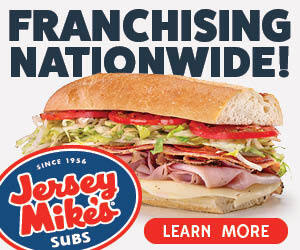Surveys Find Serious Concerns about Tariffs

Two recent surveys of representative U.S. households, conducted by Numerator in April 2025, reveal growing unrest on the economic front. A majority of households across the political spectrum were found to harbor concerns about tariffs, recession, and stock-market volatility.
Tariff Consumer Impact Survey findings include:
- 85% of consumers express concern about how tariffs will affect their personal finances and shopping behaviors, up four points from February.
- 89% of U.S. shoppers say they are aware of new or proposed tariffs, up from 83% in February 2025 and 53% in December 2024.
- As tariffs have moved to the forefront of political conversations, 40% of consumers now say they fully grasp how tariffs affect prices, up from 34% in February. Nearly half (48%) say they have a general idea but lack details while 11% admit having little to no understanding of the issue.
- 41% of consumers say tariffs have pros and cons depending on how they are implemented while 25% say tariffs are harmful, and 23% say they are helpful. The majority of Americans (60%) believe that opinions on tariffs are largely shaped by political affiliation.
- 72% of consumers are worried about higher prices on everyday goods (vs. 64% in February), 50% about limited availability of certain products (vs. 44%), 39% about a potential slowdown in economic growth (vs. 25%), and 21% about job or industry impacts (vs. 13%).
- Shoppers worry most about tariff-related price increases in essential categories, like groceries (60%), household goods (42%), and gasoline (40%). All categories except gasoline saw increased concern from February to April, especially household goods (+8 points), automobiles (+7 points), home appliances (+7 points), and personal care products (+6 points).
- 83% of consumers anticipate making changes to their shopping behaviors in preparation for new tariffs. Almost half of consumers say they will look for sales or coupons (48%) followed by delaying purchases until prices stabilize (32%), buying fewer imported goods (32%), stocking up on items prior to tariff-induced price increases (31%), and switching to U.S.-made alternatives (25%). Switching to U.S.-made products was the only reaction that declined in the past two months (-2 points) while delaying purchases (+10 points) and stocking up (+8 points) saw the largest increases.
Tariff and Recession Survey findings include:
- 72% of U.S. households are very or somewhat concerned about a recession occurring in the coming year. The unease is felt across the political spectrum. In areas of the country that voted overwhelmingly for President Trump, 63% of households are very or somewhat concerned about an upcoming recession.
- 55% of all U.S. households believe recent tariffs will be bad for the U.S. economy during the next year, 21% are unsure, and 24% believe they will have a positive impact. These sentiments were again represented across the political spectrum, even in areas of the country that voted overwhelmingly for Trump in November.
- Younger and more educated U.S. households are more likely to think tariffs are bad for the U.S. economy, compared to less educated and older households.
- Regardless of the income group they belong to, the overwhelming majority of households believe tariffs are bad for the U.S. economy or are unsure. Less than one third believe tariffs will be good for the economy.
- 70% of U.S. households are very or somewhat concerned about the recent stock-market volatility. In areas that voted overwhelmingly for Trump, the number is 60%.
- 52% of U.S. households think the economy will be worse this time next year, 16% are unsure, and just 33% think it will be better. Households in regions that voted overwhelmingly for Trump are slightly more optimistic with 36% believing that the economy will be worse, 15% being unsure, and 49% believing the economy will be better in one year's time.
Published: April 21st, 2025
Share this Feature
Recommended Reading:
| ADVERTISE | SPONSORED CONTENT |
FRANCHISE TOPICS
- Multi-Unit Franchising
- Get Started in Franchising
- Franchise Growth
- Franchise Operations
- Open New Units
- Franchise Leadership
- Franchise Marketing
- Technology
- Franchise Law
- Franchise Awards
- Franchise Rankings
- Franchise Trends
- Franchise Development
- Featured Franchise Stories
| ADVERTISE | SPONSORED CONTENT |

Aire Serv, a Neighborly company, is the nation's leading heating, ventilation, and air conditioning services franchise with over 230 locations....
Cash Required:
$50,000
$50,000
Request Info
Doner Shack is an award-winning and innovative QSR franchise offering an exciting opportunity to thrive in the rapidly growing Mediterranean food...
Cash Required:
$125,000
$125,000





 The multi-unit franchise opportunities listed above are not related to or endorsed by Multi-Unit Franchisee or Franchise Update Media Group. We are not engaged in, supporting, or endorsing any specific franchise, business opportunity, company or individual. No statement in this site is to be construed as a recommendation. We encourage prospective franchise buyers to perform extensive due diligence when considering a franchise opportunity.
The multi-unit franchise opportunities listed above are not related to or endorsed by Multi-Unit Franchisee or Franchise Update Media Group. We are not engaged in, supporting, or endorsing any specific franchise, business opportunity, company or individual. No statement in this site is to be construed as a recommendation. We encourage prospective franchise buyers to perform extensive due diligence when considering a franchise opportunity.